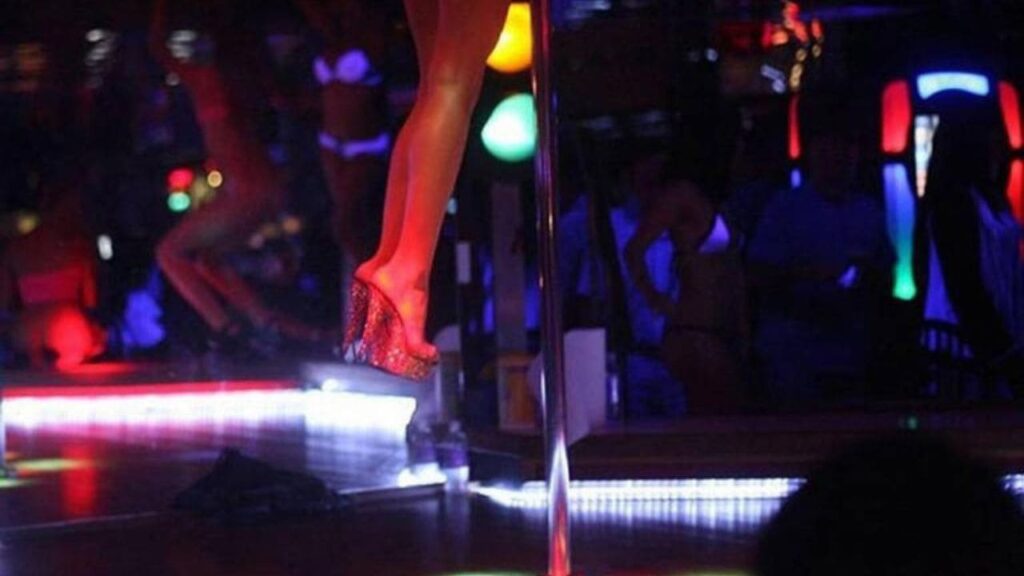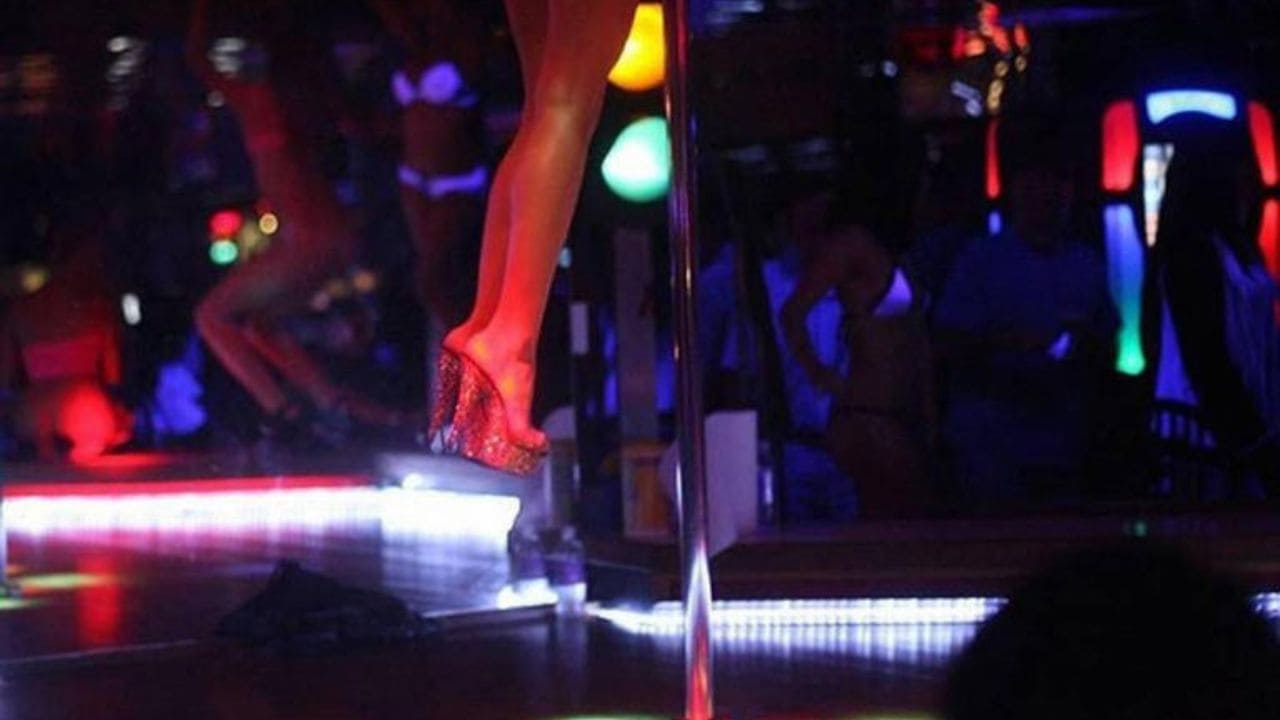Florida stripper lawsuit, age requirement law, adult entertainment, constitutional rights, First Amendment, equal protection, human trafficking law, Serenity Michelle Bushey, Café Risque, Florida law HB 7063
A 19-year-old stripper, Serenity Michelle Bushey, sues the state of Florida over a new law raising the age requirement to work in adult entertainment establishments. The lawsuit challenges the law’s constitutionality, citing violations of the First Amendment and the Equal Protection Clause. Learn more about the legal battle and its broader implications.

Florida Stripper Sues State Over Law Raising Age Requirement: A Legal Battle Over Constitutional Rights
A 19-year-old stripper, Serenity Michelle Bushey, has initiated a lawsuit against the state of Florida, challenging a new law that raises the minimum age requirement for working in adult entertainment establishments to 21. This case, which also involves Café Risque and two other adult businesses in Jacksonville as plaintiffs, highlights significant constitutional issues and the impact of the law on young adult performers. Filed in the U.S. District Court for the Northern District of Florida, the lawsuit seeks a permanent injunction to prevent the enforcement of the new age restriction law.
Background and Legal Grounds
In May, Florida Governor Ron DeSantis signed HB 7063 into law, citing its purpose to deter human trafficking. However, the new regulation has led to immediate and direct consequences for performers like Bushey, who were employed legally under the previous age threshold. Bushey, along with at least eight other performers, was fired from Café Risque, a strip club located near Gainesville, due to the updated age requirement.
The plaintiffs argue that this law infringes upon their First Amendment rights to free speech. Adult entertainment, as described in the lawsuit, constitutes a form of expressive conduct protected by the First Amendment. The complaint emphasizes that Bushey and other performers engage in artistic expression, providing entertainment for their audiences. By restricting performers under the age of 21, the law allegedly curtails their ability to participate in this form of protected speech.
First Amendment and Free Speech
The First Amendment of the United States Constitution protects various forms of expression, including artistic performances that take place in adult entertainment venues. The plaintiffs assert that their work involves a significant degree of creative expression and should be considered protected speech. By imposing an age restriction, the law potentially limits the performers’ right to express themselves artistically and economically.
The lawsuit draws parallels to previous cases where courts have recognized adult entertainment as a form of expressive conduct. Therefore, the plaintiffs contend that the state’s rationale for the age restriction does not justify the infringement on their constitutional rights.
Equal Protection Clause and Age Discrimination
In addition to First Amendment concerns, the lawsuit argues that the law violates the Equal Protection Clause of the 14th Amendment. This clause mandates that individuals in similar situations be treated equally under the law. The complaint highlights the inconsistency in allowing patrons under the age of 21 to enter adult establishments while barring performers of the same age group from working there. This, the plaintiffs claim, constitutes irrational and discriminatory treatment, lacking a substantial governmental interest.
The plaintiffs argue that if the goal is to prevent human trafficking, the law should target the perpetrators of such crimes directly rather than imposing broad age-based restrictions on performers. They suggest that the law’s enforcement targets the wrong demographic, thereby failing to address the root issue it aims to resolve.
Impact on Employment and Economic Support
One of the critical points raised in the lawsuit is the economic impact on young performers who rely on these jobs to support themselves, particularly through college. The adult entertainment industry, according to the plaintiffs, provides employment opportunities for individuals under 21, including entertainers, cooks, waitresses, and security personnel. By limiting employment to those over 21, the law significantly reduces the available job pool, which can have severe financial consequences for those who depend on these positions.
The plaintiffs also highlight the practical aspects of the industry, where hiring younger performers can attract a younger audience, essential for business operations. The restriction, therefore, not only impacts the performers but also the businesses that employ them and their economic viability.
Vagueness and Data Reliability
Another critical argument presented in the lawsuit is the vagueness of the law and the questionable reliability of the data upon which it is based. The plaintiffs argue that the law is not specific enough in its provisions, leading to arbitrary and potentially discriminatory enforcement. They also question the adequacy and quality of the data used to justify the law, suggesting that it may be based on inadequate or flawed research.
The lawsuit calls for a thorough examination of the data and rationale behind the law, arguing that any legislative action should be grounded in solid and reliable evidence. By failing to meet these standards, the law allegedly falls short of constitutional requirements.
Defendants and Legal Proceedings
The lawsuit names Florida Attorney General Ashley Moody, along with Brian S. Kramer and Melissa W. Nelson, state attorneys for the 8th and 4th Judicial Circuits respectively, as defendants. These officials are responsible for enforcing the new law. The Office of the Attorney General has indicated its intention to defend the legislation, although it had not been formally served with the lawsuit at the time of the report. Attempts to reach Kramer and Nelson for comments were unsuccessful.
This legal challenge is not isolated. The 11th U.S. Circuit Court of Appeals is currently reviewing a similar case from Jacksonville, where thirteen entertainment establishments and four performers, also represented by Edinger, are contesting a city ordinance that imposes a similar age restriction.
Broader Implications and Future Outlook
The outcome of this lawsuit could have significant implications for the adult entertainment industry in Florida and potentially influence similar legislation in other states. A ruling in favor of the plaintiffs could reinforce the protection of expressive conduct under the First Amendment and set a precedent for how age restrictions in adult entertainment are implemented and justified.
Conversely, if the law is upheld, it may encourage other states to adopt similar measures, potentially leading to widespread changes in the industry. This case also underscores the ongoing debate over the balance between protecting public welfare and upholding constitutional rights.
Conclusion
The lawsuit filed by Serenity Michelle Bushey and other plaintiffs against the state of Florida over the new age restriction law in adult entertainment establishments raises essential questions about constitutional rights, economic impact, and legislative rationale. As the legal battle unfolds, it will be crucial to monitor how the courts address the issues of free speech, equal protection, and the validity of the law’s underlying data. The decision in this case will not only affect those directly involved but could also set significant legal precedents for the future of the adult entertainment industry and the protection of constitutional rights in the United States.
Read More
